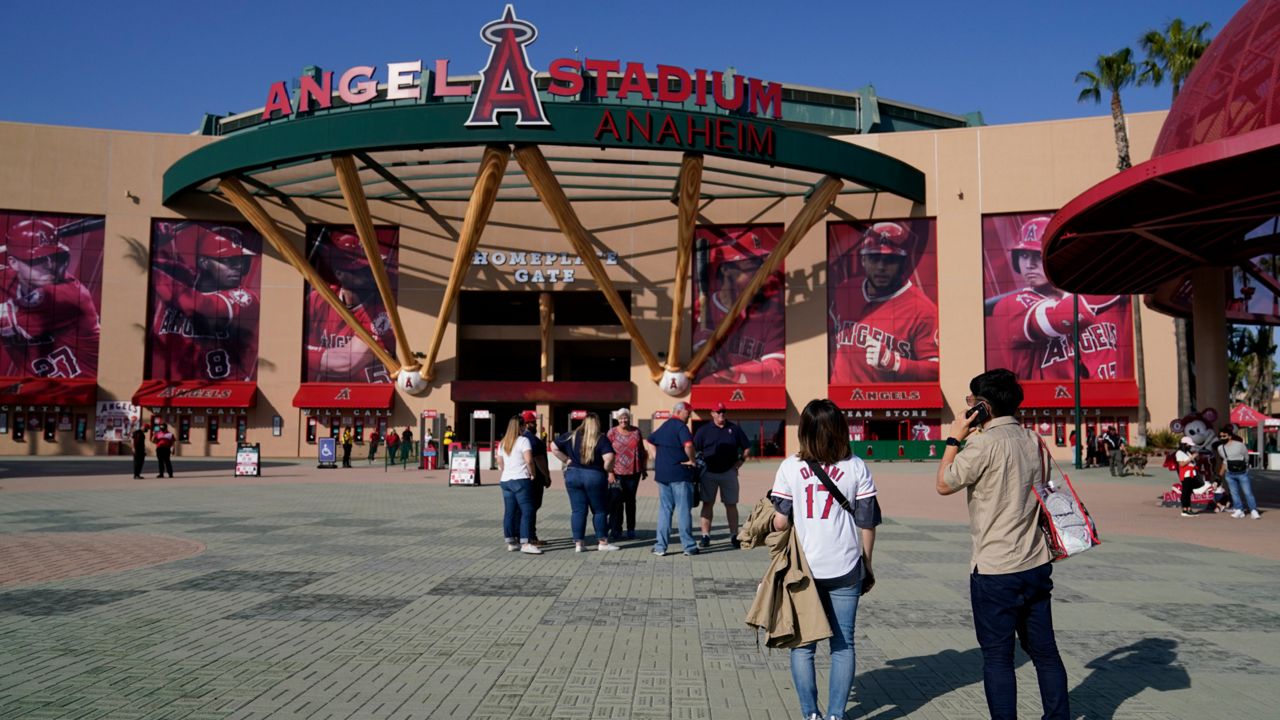ANAHEIM, Calif. — The city of Anaheim voted Tuesday to confirm details of a settlement with the State of California, closing another chapter in the long-enduring saga over Angel Stadium.
The vote, which passed 5-2, solidifies an agreement in which the city will put $96 million from the stadium sale into affordable housing.
Affordable housing advocates wanted more and still say the city violated the law, even though the city admits no wrongdoing in the settlement with the California State Attorney General.
Advocates had gone after the city, claiming it had violated the Brown Act, concealing details that ought to have been discussed publicly. A judge recently disagreed, clearing the city of those accusations.
The sticking point in the stadium sale has been affordable housing and how much money from the sale would go toward housing accessible to low-income earners.
Public commenters addressing the city council called the affordable housing money “a shell game,” indicating that the $96 million was not a windfall but a compromise that left Angels Baseball off the hook.
Council Member Jose Moreno borrowed that language in his own comments, vociferously complaining about the lack of time members had to review details of the settlement with California State Attorney General Rob Bonta. Moreno reiterated his claim that the sale was illegal, eliciting immediate interruption from Mayor Harry Sidhu, who repeatedly pointed out that the city admitted no wrongdoing.
Council Member Avelino Valencia also expressed misgivings over the deal. Valencia did not categorically condemn the settlement, instead saying he couldn’t vote to move ahead without more time with the settlement details.
Moreno echoed those feelings.
“We only had 24 hours to understand this settlement and what it means,” he said.
Moreno then called for a motion to postpone the vote, leading to even more debate during the nearly three-hour special meeting. Sidhu put the motion to a vote that lost, with only Valencia and Moreno voting yes.
Among the confusion highlighted by Valencia and Moreno is the exact number of affordable housing units that will be required to be on the property. Previous discussions indicated 466 units would be included on site. Now, it’s unclear how many units will be included in the coming investments.
Anaheim City Attorney Robert Fabela said there is not a fixed number of units required, but the developer will be compelled to include $27.7 million in its plans.
The rest of the money could be spread throughout the city to assist in meeting the state quota for affordable housing. Housing advocates say it’s not enough. But city staff believe the $96 million will roughly triple as they seek out state and federal grants.
“We will use this money to build an estimated 1,000 new homes across our city … these homes are needed in every part of the city,” Sidhu said. “We will work with our state partners to see if we can find funding for even more affordable housing on site.”



